Donald Trump’s politicking raises ethics flags
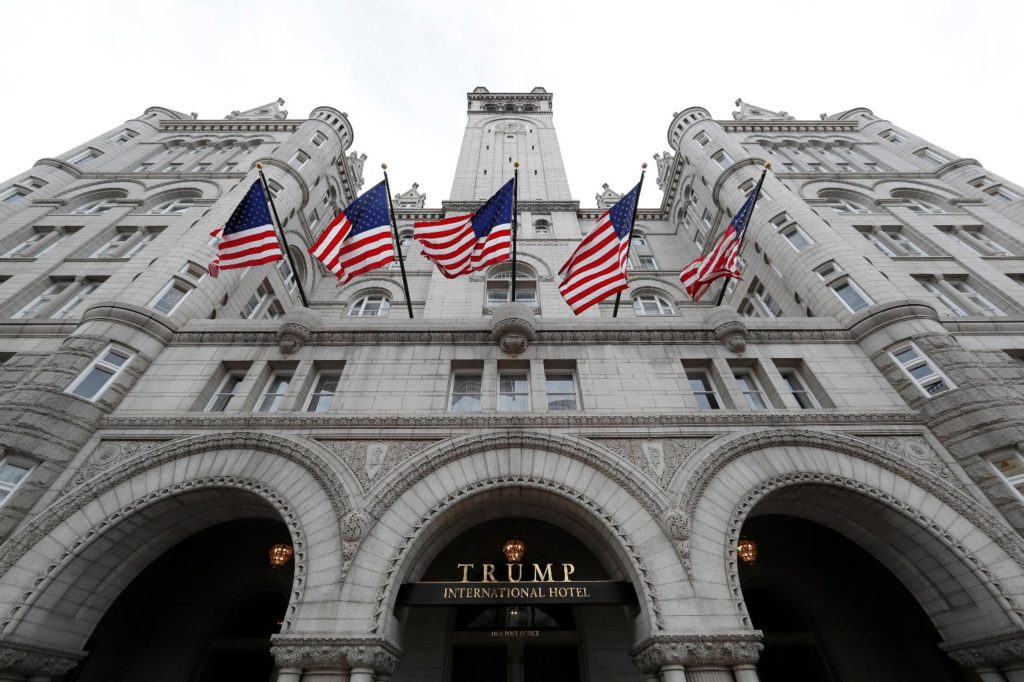
Barely five months into office, President Donald Trump keeps taking time out from governing to run for re-election. On Wednesday night, he’ll attend his first 2020 campaign fundraiser, rubbing elbows with some of the Republican Party’s top donors on familiar turf: his own hotel down the street from the White House. He’s already spent five evenings on the road at political rallies, always in states that supported him in November and always in front of an audience of thousands of fans who are screened and selected by his campaign aides. The historically early campaigning comes with clear fundraising benefits, but it has raised red flags. Among them: Government employees have inappropriately crossed over into campaign activities, tax dollars may be subsidizing some aspects of campaign events, and as a constant candidate, the president risks alienating Americans who did not vote for him. Larry Noble, former general counsel to the Federal Election Commission, said the early campaigning creates plenty of “potential tripwires,” adding: “They’re going to have to proceed very carefully to avoid violations.” The White House ensures that political entities pay for campaign events, and White House lawyers provide advice to employees to make sure they do not run afoul of rules preventing overtly political activities on government time, spokeswoman Lindsay Walter said Tuesday. The Trump team has decided that any risks are worth it. The re-election effort raised more than $7 million in the first three months of this year, all from small donations and the sale of “Make America Great Again” merchandise. Wednesday’s dinner is his first solicitation of larger donors, with tickets starting at $35,000. Trump can ask for those large donations because the money is to be split between his re-election campaign and Republican Party groups. Campaign director Michael Glassner has said the rallies give Trump the chance to speak directly and powerfully to his base of supporters. And the president is clearly energized by his campaign rallies. But Trump’s social media guru, who now works at the White House, is Exhibit A on the dangers of running a permanent campaign. The Office of the Special Counsel, an independent agency that investigates federal personnel, reprimanded Dan Scavino for violating the Hatch Act, a law prohibiting the use of government resources for campaigning. Scavino had tweeted a call to defeat a Republican representative who is often critical of Trump. “Mr. Scavino has been advised that if in the future he engages in prohibited political activity while employed in a position covered by the Hatch Act, we will consider such activity to be a willful and knowing violation of the law,” the counsel’s office wrote in a June 5 response to a liberal-funded watchdog that had complained about the tweet. Last week, Scavino sent a message from his government Twitter handle that mentioned both Trump’s presidential appearance in Iowa and his political rally there later that night. “What you have to do is draw very clear lines, or you risk having people constantly blurring or crossing them,” said Virginia Canter, executive branch counsel for the group Citizens for Responsibility and Ethics in Washington, which has complained about Scavino’s tweeting. Canter was a longtime federal ethics attorney before joining CREW. Scavino earns a government salary as White House director of social media, and his company continues to financially benefit from the Trump campaign. Scavino & Associates collected $14,500 for consulting from Trump’s re-election campaign in the first three months of this year, FEC reports show. He’s not the only person juggling duties. At an April Trump campaign rally in Harrisburg, Pennsylvania, Commerce Secretary Wilbur Ross was photographed signing a “Trump/Pence” poster for a fan. White House deputy press secretary Sarah Huckabee Sanders tweeted that photo from her government account with the Trump campaign slogan “MAGA” – short for “Make America Great Again.” CREW filed a Hatch Act complaint about Sanders, and the Office of Special Counsel cleared her because her tweets didn’t push for her boss’s re-election. The office said in public guidance issued in February that Trump’s early decision to become a candidate needed a special approach for how to navigate the Hatch Act. “Because the 2020 election is still more than three years away, at this time not all expressions of support or opposition to President Trump constitute political activity for purposes of the Hatch Act,” the office wrote. Closer to the election, it warned, the prohibitions will broaden. In April, the campaign made its first new commercial, a celebration of the president’s first 100 days in office. But its first cut of the 30-second ad included a clip of National Security Adviser H.R. McMaster in uniform – a no-no under Defense Department rules prohibiting active duty military members from political advocacy while in uniform. The campaign removed the footage. Trump’s predecessors also took heat for commingling presidential and political duties when they began running for re-election. In 2012, Reince Priebus, then head of the Republican National Committee, complained to the Government Accountability Office that President Barack Obama was “fraudulently” billing the government for political travel. Obama said he carefully followed the rules about when his campaign must reimburse the government. Priebus, now Trump’s chief of staff, joined the president at a February campaign rally in Melbourne, Florida. So far, no reimbursements to the Secret Service, which operates Air Force One, have shown up in the Trump campaign’s FEC reports. Walters said the White House, through its lawyers, “carefully scrutinizes each itinerary to ensure that the proper political entity pays for all political travel and that official funds are used exclusively for official travel.” Republished with permission of The Associated Press.
Luther Strange supporters launch joint-fundraising effort for crowded Senate race

He’s only been in office a few short months and already Sen. Luther Strange is having to do something most sitting senators don’t have to worry about but once every six years — campaign to keep his seat. Facing a bevy of primary challengers — former Chief Justice of the Alabama Supreme Court Roy Moore; State Rep. Ed Henry; President of the Christian Coalition of Alabama Dr. Randy Brinson; Birmingham businessman Dom Gentile — Strange has his work cut out for him preparing for the August 15 GOP primary. Which is precisely why a new joint-fundraising effort has been launched on his behalf. Seeking to boost the senator’s chance of winning the primary and to clear a path for a December special election victory, former Republican National Committee CFO Benjamin Ottenhoff filed the paperwork on Tuesday creating the Strange Victory Committee to fundraise on behalf of Strange for Senate and the National Republican Senatorial Committee (NRSC). The move should come as no surprise as NRSC communications director Katie Martin told Politico last month, “We have made it very clear from the beginning that Sen. Luther Strange would be treated as an incumbent. It has also been a clear policy that we will not use vendors who work against our incumbents.” Martin said Strange is considered an incumbent by the NRSC and will be protected like one. Fundraising aside, Strange may already have a leg-up on his opponents. According to his campaign’s latest filing with the Federal Election Commission he already has $763,612 cash-on-hand. Last month Gov. Kay Ivey moved the date of the special election to 2017 from 2018, giving little time for his opponents to catch up on the fundraising front. Prior to that, the special election was set to coincide with the 2018 regular election cycle as set by former-Gov. Robert Bentley. “I promised to steady our ship of state. This means following the law, which clearly states the people should vote for a replacement U.S. Senator as soon as possible,” Ivey said in a statement. “The new US Senate special election dates this year are a victory for the rule of law.” In February, Bentley appointed Strange to the Senate seat to replace Jeff Sessions. The GOP primary will be his first test of approval to see if Alabamians support Bentley’s decision.
A month into presidency, Donald Trump prepares for a campaign rally
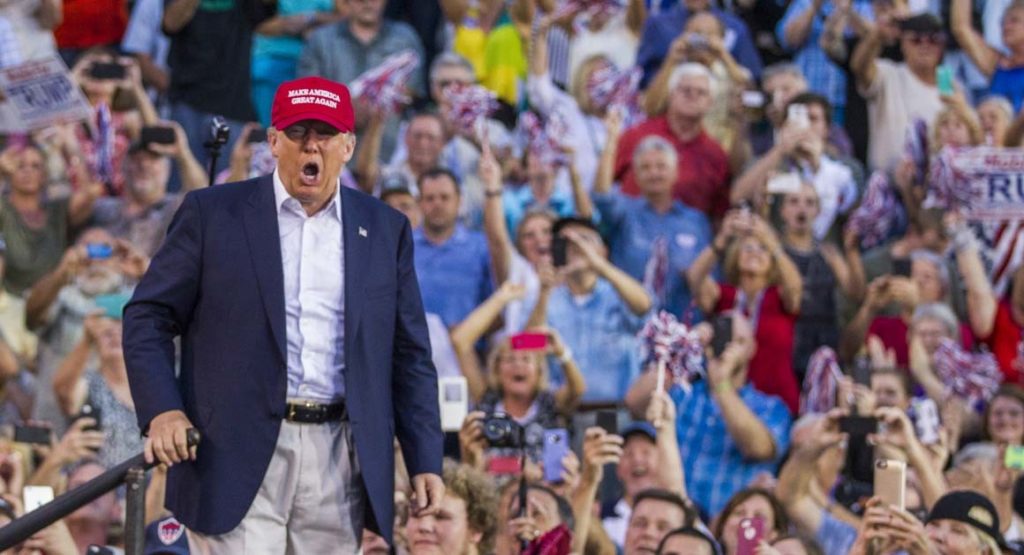
President Donald Trump is holding a campaign rally Saturday in politically strategic Florida — 1,354 days before the 2020 election. The unusually early politicking follows a pattern: Trump filed his paperwork for re-election on Jan. 20, Inauguration Day. By comparison, President Barack Obama didn’t make his re-election bid official with the Federal Election Commission until April 2011. Huge rallies were the hallmark of Trump’s presidential campaign. He continued to do them, although with smaller crowds, throughout the early part of his transition, during what he called a “thank you” tour. The Florida event will be his first such one as president. “I hear the tickets — you can’t get them,” Trump said Thursday during a meeting with lawmakers. “That’s OK, that’s better than you have too many.” Trump responds well to the supportive crowds, who often chant, cheer and applaud enthusiastically when he speaks. The rallies serve a practical purpose by enabling his campaign to continue building a list of supporters. To attend, people must register online, giving their email address and other personal information that the campaign can use to maintain contact and raise money. Trump’s upcoming evening event is set for an airport hangar in Melbourne, Florida, and it comes as he makes another weekend trip to what he calls his “Winter White House,” his Mar-a-Lago resort in Palm Beach. Trump also said he would play golf this weekend with Ernie Els, a South African professional golfer. It will be his Trump’s third consecutive weekend at Mar-a-Lago. White House spokesman Sean Spicer said the rally is “being run by the campaign.” It follows an official trip Friday to South Carolina, where Trump will visit a Boeing facility in North Charleston. Spicer and others at the White House have not responded to repeated questions about why Trump’s embryonic campaign is organizing this rally, or about who will pay for the event and transportation to and from it. Presidents regularly hold large campaign-style events to build support for their policies. Those events are often considered part of their official duties and organized by the White House. Michael Glassner, executive director of Trump’s campaign committee, also did not respond to questions. Trump’s campaign is running the event because Trump does not want to spend taxpayer dollars on it, a person close to him said. The person requested anonymity to discuss private conversations. Although Trump is getting started far earlier than his predecessors, it’s common for presidents to combine political and governing events into the same trip. When that happens, the campaign picks up the tab for part of the trip and taxpayers for the rest. Trump’s campaign account had more than $7.6 million in the bank at the end of the year, according to fundraising reports. He’s continued raising money postelection by selling popular merchandise, such as the ubiquitous red “Make America Great Again” ball caps. On Thursday, as the president wrapped up a confrontational press conference with the media — during which he repeatedly referred to coverage as “unfair” and “fake news” — one of Trump’s campaign accounts emailed a “media survey” to his supporters. The 25 multiple-choice questions included: Do you believe that the mainstream media has reported unfairly on our movement? Do you believe that our Party should spend more time and resources holding the mainstream media accountable? After clicking through the survey, there’s a prompt to donate money. Republished with permission of The Associated Press.
Jill Stein makes Michigan third state for presidential recount
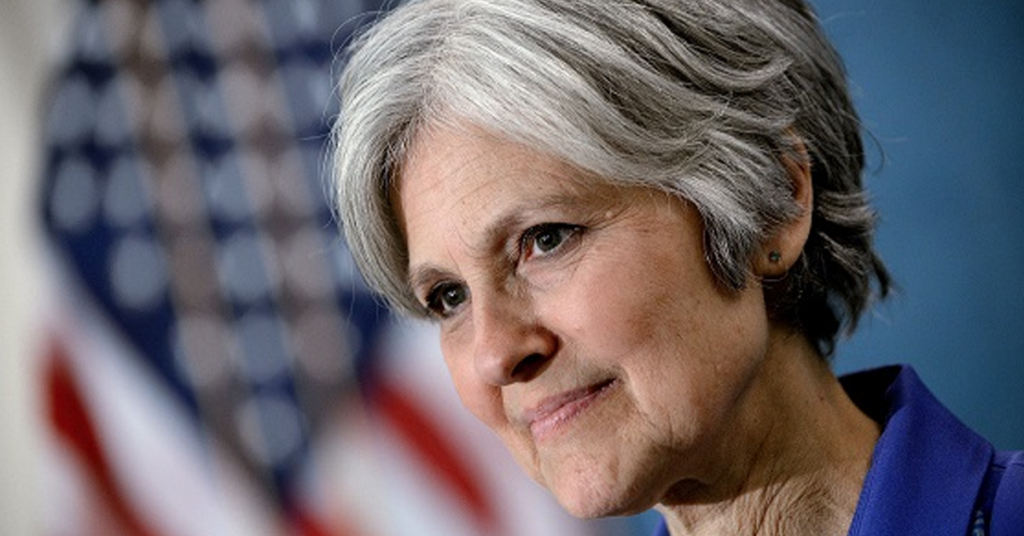
Green Party presidential nominee Jill Stein on Wednesday requested a full hand recount of Michigan’s presidential vote, making it the third state narrowly won by Republican Donald Trump where she’s asked for another look at the results. Stein previously requested recounts of the presidential votes in Pennsylvania and Wisconsin. President-elect Trump defeated Democrat Hillary Clinton by 10,704 votes out of nearly 4.8 million ballots cast in Michigan, but Stein alleges that irregularities and the possibility that vote scanning devices could have been hacked call the results into question. Elections officials in all three states have expressed confidence in their election results. Michigan’s recount could start as early as Friday, though a challenge to the recount by Trump could delay it. Trump’s victory is highly unlikely to be reversed in any of the states, but Stein has said the recount will ensure the integrity of the election. Republicans have said a Michigan recount would cost taxpayers far more than the $973,000 Stein must pay when filing her recount petition. Meanwhile in Wisconsin, where Trump defeated Clinton by roughly 22,000 votes, Stein’s campaign said Wednesday that it won’t appeal a judge’s ruling that Wisconsin’s recount can be done without counting every ballot by hand. Stein spokeswoman Margy Levinson said in an email that the campaign decided not to appeal the ruling due to the tight time constraints for completing the Wisconsin recount, which begins Thursday. Most Wisconsin counties plan to recount their ballots by hand even though the judge’s ruling means they can choose to feed the ballots into tabulation machines to double-check the results. Levinson said Stein’s focus will be on verifying the vote on the ground and she encouraged counties to voluntarily conduct a hand recount. The Wisconsin Republican Party filed a complaint with the Federal Elections Commission on Wednesday alleging that Stein’s recount effort amounts to illegal coordination with Clinton designed to circumvent the law and public scrutiny. Stein campaign manager David Cobb said in a statement that Stein is not coordinating with anyone and dismissed the complaint as a “PR stunt to push a false narrative that will ultimately have no impact on the recount in Wisconsin.” Trump defeated Clinton in Pennsylvania by about 71,000 votes, or about 1 percentage point. Republished with permission of The Associated Press.
Alabamians gave Hillary Clinton their votes and their dollars, but to Donald Trump only votes
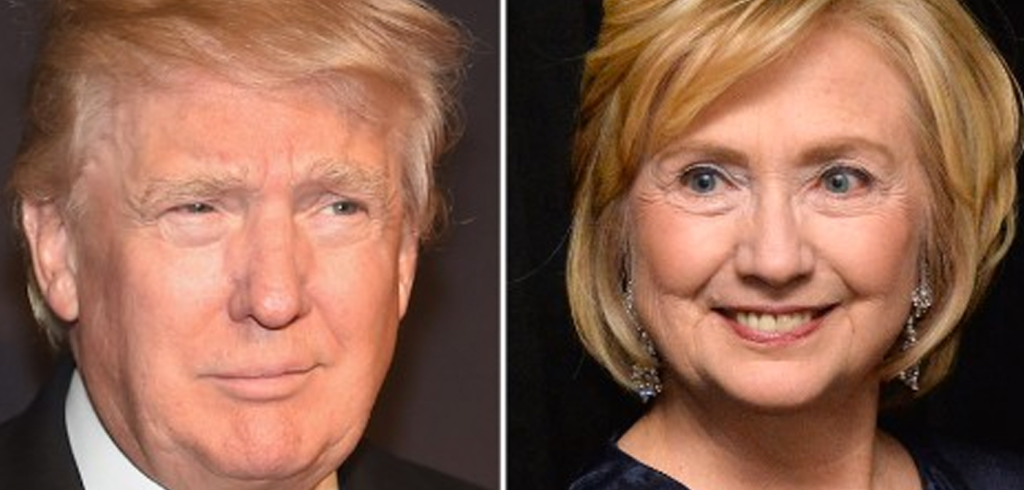
Hillary Clinton won the Alabama Democratic Primary back in March by a whopping 77.8% over rival Bernie Sanders, and the dollars have flowed accordingly. To date, Clinton has taken in $658,565 from Alabamians supporting her in the 2016 cycle. Meanwhile, despite winning the state’s GOP primary, presumptive Republican nominee Donald Trump has yet to see votes translate to donations like the Clinton camp. Alabamians have only sent $50,263 to his campaign this cycle. Just 2.13% of total GOP donations according to the latest campaign finance numbers. What’s more is Trump’s main Alabama primary opponent, Ted Cruz, who took home a paltry 21.1% of the vote compared to Trump’s 43.4%, has raked in $718,226 from 7,960 donors across the state. Trump only has 219 Alabama donors — 36 times fewer donors than Cruz. The numbers, from the Federal Election Commission, show that all candidates who were in the field at some point in the race, Republicans and Democratic, have gathered a total of $3.2 million from the Yellowhammer State. While Clinton has handily taken in more donations than Trump, she’s also worked a lot harder for them. Unlike his contemporaries, the billionaire businessman has yet to actively solicit dollars, which may explain his low intake amounts. The good news for Trump? While the former First Lady may have a lot of more cash in her coffer coming from the Yellowhammer State, Trump’s averaging larger checks per Alabamian — $229.51 to $146.18. Republicans: $2,351,447 Ted Cruz: $718,226 Ben Carson: $569,388 Marco Rubio: $444,669 Jeb Bush: $270,599 Mike Huckabee: $83,617 Rand Paul: $55,735 Scott Walker: $54,906 John Kasich: $53,983 Donald Trump: $50,263 Carly Fiorina: $31,294 Rick Santorum: $10,908 Chris Christie: $3,645 Bobby Jindal: $2,759 Lindsey Graham: $855 Rick Perry: $600 Democrats: $938,963 Hillary Clinton: $658,565 Bernie Sanders: $275,858 Martin O’Malley: $2,891 Larry Lessig: $1,000 Jim Webb: $650
Watchdog group files complaint in shadowy Marco Rubio super PAC gift
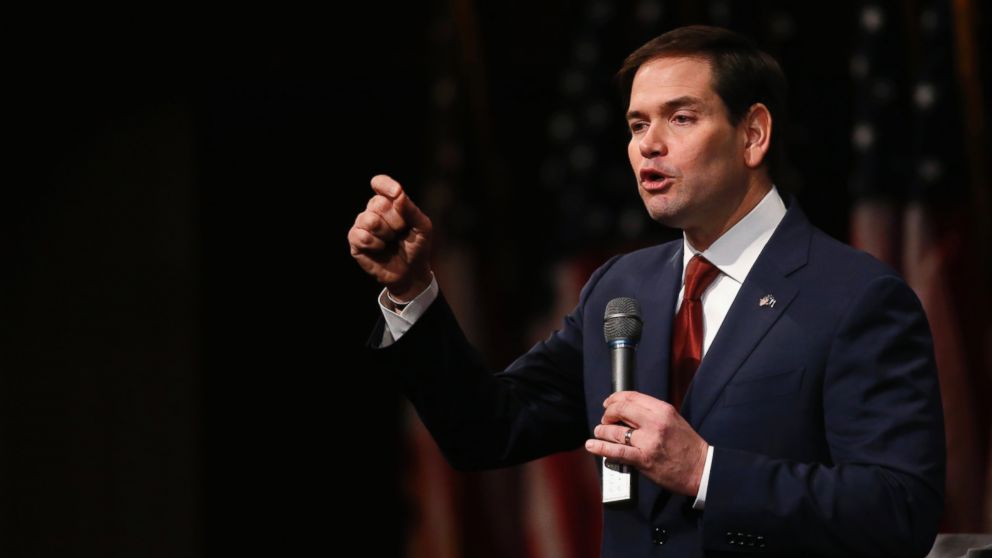
An election watchdog organization filed a complaint Friday with the Federal Election Commission over a $500,000 donation to a super political action committee aiding Marco Rubio from a mystery firm headed by a New York investor. Efforts by good government groups to stem the use of shadowy corporate entities to channel large political donations have been long stymied by the FEC’s internal political paralysis. The complaint from the Citizens for Responsibility and Ethics in Washington, or CREW, seeks an investigation into IGX LLC for masking the donation and to determine whether the Conservative Solutions PAC was aware of the origins of the contribution. The actual donor, Andrew Duncan, of Brooklyn, New York, acknowledged to The Associated Press earlier this month that he had routed his contribution through IGX, a business entity registered last year in Delaware. Noah Bookbinder, CREW’s executive director, the group filed its complaint because “you’re not allowed to use a corporation as a pass-through to hide donations.” He said IGX’s lack of business activity “makes it appear that it was being used as a pass-through.” The CREW complaint cites FEC regulations prohibiting donations “in the name of another person and knowingly permitting one’s name to be used to effect a contribution in the name of another person.” CREW says that if the IGX donation was “knowing and willful,” the matter should be referred to the Justice Department for investigation. Duncan and spokesmen for the super PAC and the FEC did not immediately respond to requests for comment from the AP. Large political donations masked behind limited liability companies have become increasingly common with the rise of super PACS. Donors are obligated under federal law to identify the source of the gifts but are allowed to shield them through corporate entities. In many cases, donors’ identities have been exposed by media or political organizations, but the FEC has yet to rule on recent complaints because the agency’s Democratic and Republican-leaning commissioners remain deadlocked. The agency’s six commissioners are divided evenly between Democratic and Republican appointees and have repeatedly split in recent years along party lines, prompting the FEC’s chairwoman, Ann M. Ravel, to publicly vent frustration last year about its inaction. “We’re very concerned about the stalemate at the FEC, but we feel we have an obligation to take the steps necessary to get action,” Bookbinder said. He said that bringing attention to the issue of masked donors “creates a political cost to donors and campaigns that violate the rules.” Election watchdog groups have filed a spate of FEC complaints about masked donors since the rise of super PACs. The Supreme Court ruling in 2011 in the Citizens United case allows nearly unfettered contributions from corporations and labor unions to political committees. One good government group, the Campaign Legal Center, has filed five complaints. Among them is a 2012 request for a closer look into the use of two Tennessee “straw companies” that channeled $12 million in donations to a super PAC run by the conservative organization, FreedomWorks of America. The money was spent on congressional races. The FEC has yet to rule on the 3-year-old complaint. “It’s infuriating that the FEC hasn’t acted on these cases,” said Paul S. Ryan, deputy executive director of the Campaign Legal Center. In the IGX LLC case, Duncan conceded that he was the source of the money after the AP found a similar $2,700 donation he had made to Rubio’s campaign under his own name and IGX. Duncan, an activist on behalf of human rights in China, told the AP he supported Rubio’s stance on China but was worried about reprisals. Duncan’s corporate shield was one of several that cropped up in federal contribution filings last month. Billionaire Frank VanderSloot of Idaho also gave $175,000 to Conservative Solutions through two LLCs. And a $125,000 donation was made to a super PAC supporting Republican Iowa Gov. John Kasich from HJK LLC, an entity registered to a firm headed by Peter S. Kalikow, the former publisher of the New York Post. Republished with permission of the Associated Press.
Campaign finance reports offer indication of easy path to reelection for Alabama delegation
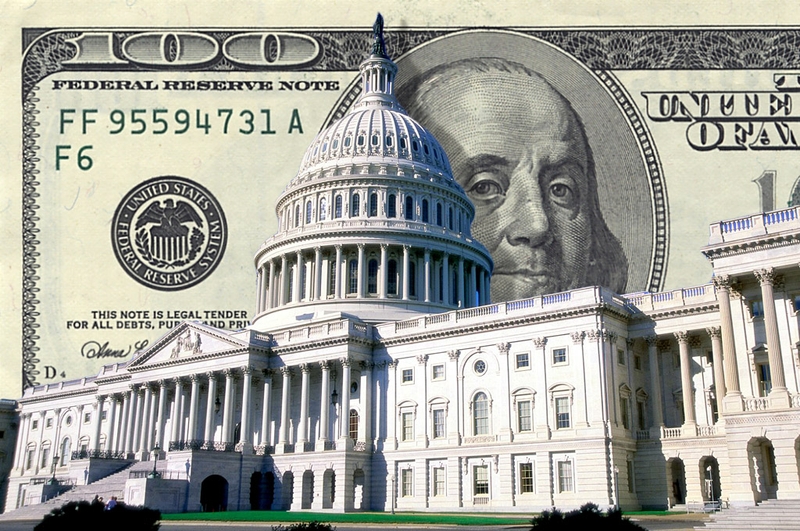
If the latest round of campaign finance reports are any indication, the incumbent Alabama delegation will be smooth sailing toward victory next November. While most of the races in the Yellowhammer remain unchallenged, a federal reporting deadline Thursday night shows Alabama politicians’ campaign coffers are filling up and they’re faring well on the fundraising front in their reelection efforts. Officially filed with the Federal Election Commission the reports disclose funds raised during third fundraising quarter, which ran from July 1 through September 30. Here’s how the Alabama delegation stacks up: U.S. Sen. Jeff Sessions: won re-election in 2014. U.S. Sen. Richard Shelby: not yet filed at the time this was published. Challenger: Ron Crumpton (D) Cash on hand: $39 U.S. Rep. Bradley Byrne (AL-01) cash on hand: $449,621. U.S. Rep. Martha Roby (AL-02) cash on hand: $733,545. Challenger: Becky Gerritson (R) Challenger: Robert E. John, Jr (I) U.S. Rep. Mike Rogers (AL-03) cash on hand: $466,022. U.S. Robert Aderholt (AL-04): not yet filed at the time this was published. Challenger: Phillip Norris (R) Cash on hand: $95 U.S. Rep. Mo Brooks (AL-05) cash on hand: $976,718. Challenger: Willie Boyd, Jr. (D) Cash on hand: $819 U.S. Rep. Gary Palmer (AL-06) cash on hand: $711,196. Challenger: David Putnam (D) Cash on hand: $4,753 Debt: $5,325 U.S. Rep. Terri Sewell (AL-07) cash on hand: $476,588
Anonymous donors send millions to pro-Marco Rubio group
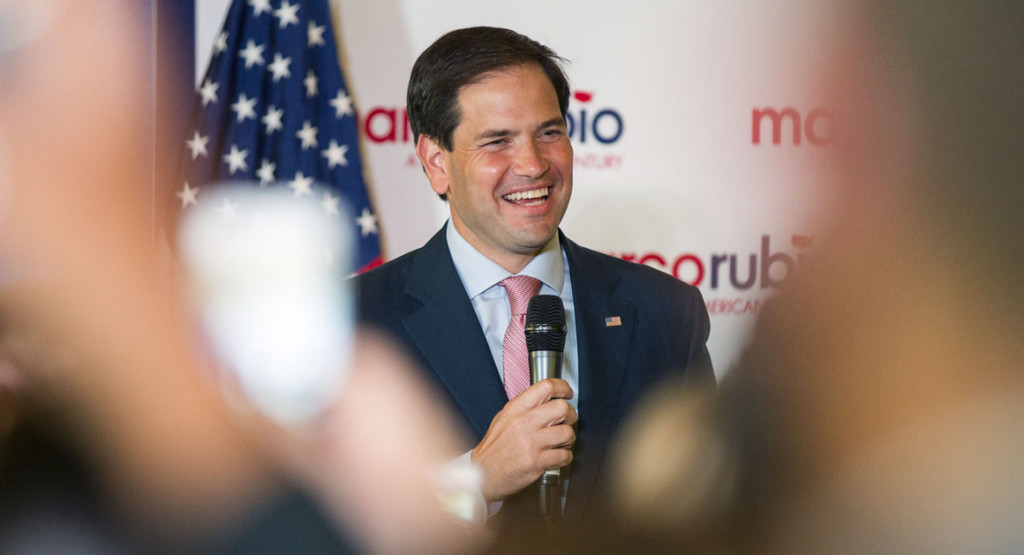
Voters are beginning to learn about Republican presidential hopeful Marco Rubio. What they’re not learning, however, is who is paying to promote his candidacy. The Florida senator is benefiting in unprecedented ways from a nonprofit group funded by anonymous donors. While other presidential candidates also have ties to secret-money groups, the Rubio arrangement is the boldest. Every pro-Rubio television commercial so far in the early primary states of Iowa, New Hampshire and South Carolina has been paid for not by his campaign or even by a super PAC that identifies its donors, but instead by a nonprofit called Conservative Solutions Project. It’s also sending Rubio-boosting mail to voters in those same states. Rubio is legally prohibited from directing the group’s spending, and he has said he has nothing to do with it. But there’s little doubt that Conservative Solutions Project is picking up the tab for critical expenses that the campaign itself might struggle to afford. Although Rubio is rising in national polls, his fundraising has so far been dwarfed by that of former Florida Gov. Jeb Bush, Texas Sen. Ted Cruz and retired neurosurgeon Ben Carson. By the end of June, Bush and his super PAC had amassed $114 million – more than quadruple what Rubio and his super PAC collected. Ahead of what is expected to be a new and disappointing fundraising report next week, Rubio’s aides have stressed that their thriftiness gives them a competitive advantage over campaigns with more money. Left unsaid was that a secret-money group is giving him at least an $8 million assist, according to information provided by advertising tracker Kantar Media’s CMAG. The candidate has presented himself as being opposed to such unaccountable money. “I believe that – as long as it’s being disclosed – that people have a right to participate in our political process,” Rubio said in June at a voter forum in New Hampshire when asked about “the corrupting influence” of money in politics. Conservative Solutions Project does not disclose its donors. Its latest commercial shows Rubio, 44, speaking at the Iowa State Fair. “New ideas for a new age,” a narrator says before ticking through a list of Rubio priorities: “throw out the tax code, overhaul higher education, repeal and replace Obamacare.” Conservative Solutions Project has put $2.3 million into the 30-second ad over the past three weeks and is on deck to spend close to another $1 million keeping it on the air next week, according to CMAG information about advertising placements on broadcast, cable and satellite television. That follows a $3 million summertime ad campaign by the same group that promoted Rubio’s strong opposition to a deal the White House and other countries struck with Iran on nuclear weapons. Conservative Solutions Project also has reserved nearly $2 million in additional satellite TV advertising space through Feb. 16, according to the advertising tracker. Although numerous candidates may ultimately benefit from allied nonprofits, so far it appears that only the entities helping Rubio and Louisiana Gov. Bobby Jindal are advertising in the presidential race. America Next has spent about $380,000 boosting Jindal on TV, CMAG said. Bush also has a secret-money group in his corner, but it hasn’t yet directly communicated with voters. Nonprofits are the edgier cousins of super PACs. Both can accept unlimited amounts of money from wealthy donors, corporations and unions, but only nonprofits can keep those names a secret. In exchange for that privilege, nonprofits are barred from making political activity their primary purpose. But gray area abounds. The two regulating agencies, the Federal Election Commission and the Internal Revenue Service, have been less than aggressive in pursuing potential violators. The Campaign Legal Center in Washington is suing the FEC for failing to require a nonprofit that was active during the 2012 presidential election to file finance reports. “Congress, the Supreme Court and the public have all recognized that voters have a right to know who is spending money to try to influence them on Election Day,” said Paul S. Ryan, the center’s senior counsel. “Transparency is how we hold politicians accountable and make sure they’re not in the pocket of their benefactors.” That’s in line with public opinion: Seventy-five percent of voters, an equal share of Democrats and Republicans, said contributors to unaffiliated groups should be disclosed, according to a CBS News/New York Times poll in June. The Conservative Solutions Project declined to say who gave it the $16 million it claims to have. Although it shares a name and key personnel with the Rubio-focused super PAC, Conservative Solutions PAC, its mutual spokesman, Jeff Sadosky, said the two are “very separate and distinct groups.” He said the nonprofit’s work goes well beyond Rubio’s presidential ambitions, pointing to a detailed study it did last year of voter behavior, which was made available on its website. Additionally, Sadosky said, Conservative Solutions Project highlights on its website the work of other conservative leaders, including Illinois Sen. Mark Kirk and Arkansas Sen. Tom Cotton. But its bent toward Rubio is apparent even there: Visitors to the site are immediately routed to a video of the Florida senator speaking, the same footage on television in early primary states. Republished with permission of the Associated Press.
Pro-Bush super PAC spending $10M-plus on first TV campaign
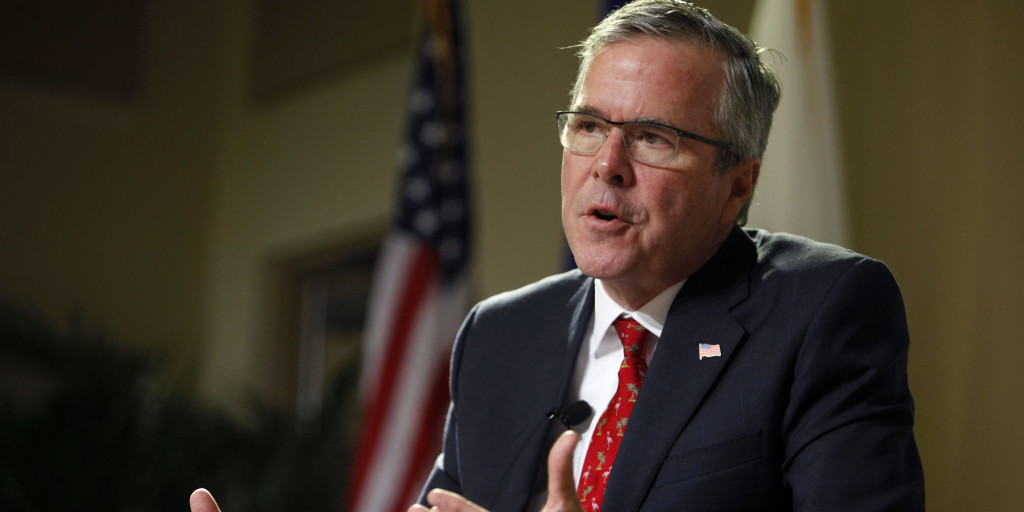
The heavily funded super PAC backing Republican Jeb Bush will spend at least $10 million on television time in the earliest voting presidential primary states, the first salvo in a massive TV ad campaign to support the former Florida governor’s bid for the Republican nomination. Officials with Right to Rise USA say they will buy time in Iowa, New Hampshire and South Carolina TV markets and on cable television in the three states. Ads are scheduled to begin in Iowa and New Hampshire on Sept. 15, in South Carolina a week later and then run continuously through the end of the year. The plan, shared by the group with The Associated Press prior to Monday’s buy, is the first evidence of Right to Rise USA’s major strategic spending of the roughly $100 million it had on hand last month. It’s also the first major move by the group, which was developed by longtime Bush adviser and California ad maker Mike Murphy, to run alongside Bush’s own campaign organization, which is bound by federal fundraising limits. “We believe Jeb Bush has the strongest record of conservative accomplishments in the race, and we plan to tell that story,” Paul Lindsay, communication director for Right to Rise USA, told the AP. The first ads will be positive spots promoting Bush in a field that includes 16 other major GOP candidates. They will resemble videos on the group’s website, promoting Bush and his accomplishments as Florida governor from 1999 to 2007. One piece was taken from clips of Bush from the Aug. 6 Republican debate in Cleveland, Lindsay said. That does not mean the group’s ads won’t turn to criticizing Republican rivals once the first contests draw near. The group has already aired one online ad that points to Bush’s release of decades of tax returns and publication of thousands of emails sent during his time as governor, to draw comparisons with Democratic front-runner Hillary Rodham Clinton, who recently turned over her private email server to the FBI under pressure. To date, the group, based in southern California, has spent roughly $200,000 on online advertising. The new expenditure, which Lindsay described as an “eight-figure” buy, is significant because it’s the first big expense for the group that Bush helped raise more than $103 million to finance, and which is expected to perform other campaign functions in support of the former governor. Under Federal Election Commission rules, Bush, having declared his candidacy on June 15, is now forbidden as a candidate from directly soliciting money for the group or advising how to spend it. However, before declaring his candidacy, Bush was involved in fundraising for Right to Rise USA, while Murphy planned a long-term strategy where the super PAC would complement the campaign, which is bound by fundraising restrictions that don’t apply to super PACs. The idea of a parallel outside group that can raise unlimited sums from individuals, corporations and groups is not new. Mitt Romney, the 2012 GOP nominee, attempted it later in his campaign. And other GOP candidates for the 2016 GOP nomination have formed super PACs and have begun buying advertising time in early states. However, none has combined the planning strategy with the sums of money Bush’s super PAC has been able to raise, making it a pioneering effort in the super PAC era of presidential campaigning. In June, the group announced it had met its ambitious goal of raising more than $100 million, taking full advantage of the nation’s campaign finance laws to collect $103 million over the first six months of 2015. In June, the group had a balance of $98 million. No candidate for president has benefited from so much money so early in a campaign. Aides to the super PAC noted that similar groups supporting other candidates have purchased advertising time in early states. Some have also aired spots aimed at bumping up a candidate’s national poll numbers to help them gain entry into debates that require top-10 standing. Right to Rise USA aides said their strategy is long-term, aimed at building sustained name identification and support heading into the Iowa caucuses, which begin the 2016 voting on Feb. 1, followed by the New Hampshire and South Carolina primaries. Republished with permission of The Associated Press.
Gary Palmer, Mo Brooks pick up Sarah Palin support, checks
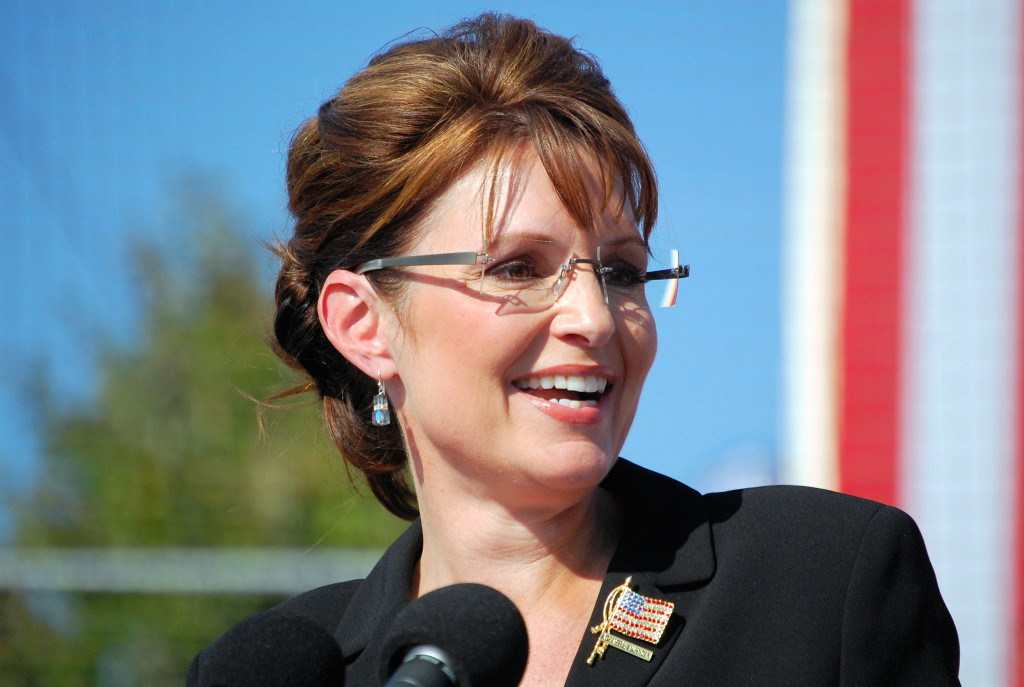
Gary Palmer made a promise on the campaign trail not to vote for John Boehner for Speaker of the U.S. House. That was a promise he kept. Instead, he cast his vote for U.S. Sen. Jeff Sessions to lead the House. Sunday, the blog Conservatives4Palin reported on the latest FEC filings for SarahPAC, 2008 GOP vice presidential nominee Sarah Palin‘s Political Action Committee (PAC), and noted that she gave early to 18 of the 25 members who voted against Boehner. As listed on their website: Those who opposed Boehner and have received early contributions from Sarah PAC include Justin Amash, Rob Blum, Dave Brat, Jim Bridenstine, Jeff Duncan, Scott Garrett, Chris Gibson, Louie Gohmert, Paul Gosar, Walter Jones, Steve King, Thomas Massie, Mark Meadows, Gary Palmer, Bill Posey, Marlin Stutzman, Daniel Webster, and Ted Yoho. Daniel Webster, Louie Gohmert, Jeff Duncan, Trey Gowdy, Jim Jordan, and Ted Yoho all received votes to replace John Boehner as Speaker, and all received contributions from Sarah PAC. Mo Brooks also received a contribution. Though he ultimately ended up voting for Boehner to be speaker he had been outspoken in the past about not agreeing with his leadership. In an interview with The Hill last year Brooks incorrectly predicted that Boehner may not ever run for re-election as speaker. “He is just not acting like an individual who is doing the things you would need to do to get re-elected Speaker of the House,” Brooks said. “It might be the acquisition of the residency in Florida, it might be blaming the Republicans, his own caucus, for the shutdown, it might be blaming his own caucus for the impasse over immigration, it might be the rather salty language he has used to describe some of his own Republican Conference members, but you add all these things, and that’s just not the kind of conduct you would expect from someone who is going to run for Speaker.” On the day of the vote WAAYTV reported that Brooks said, “My intention today is to vote for John Boehner, quite frankly with some reluctance, but he is the best of the options.” When it came to voting against the speaker to send a message he reportedly said, “It’s much like trying to topple a king. Typically speaking if there is a rebellion against the king you better win because if you don’t you lose your head,” Brooks said, “and I don’t believe in symbolic votes on something as important as this.”
Democratic activists still not quite ready for Hillary Clinton
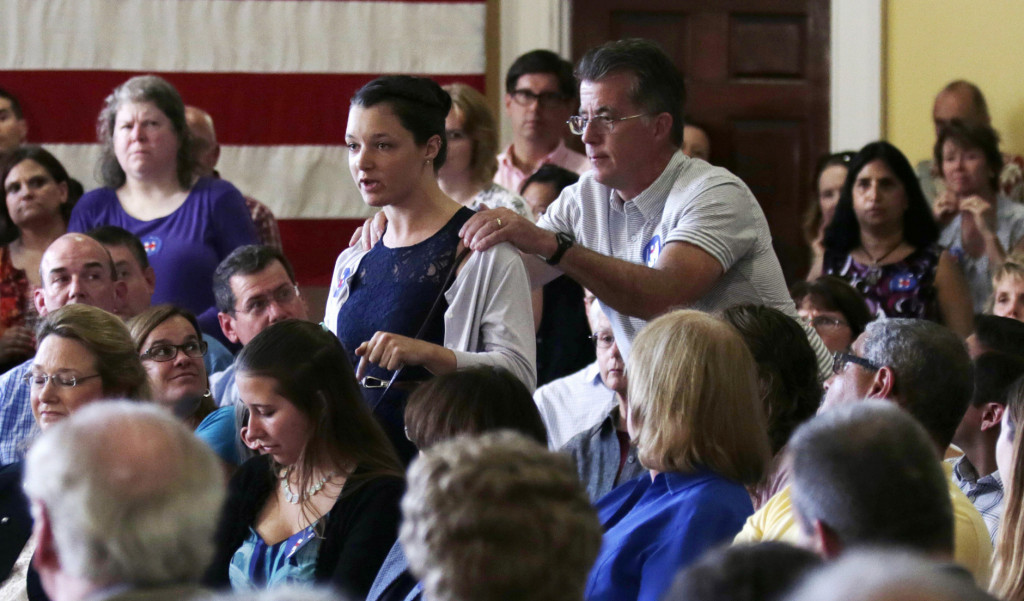
Three months into Hillary Rodham Clinton‘s campaign for president, there are fresh warning signs she may be falling short with some Democratic voters whose enthusiasm will be essential to her success in 2016. While Clinton remains the front-runner for her party’s nomination, new polling by Associated Press-GfK shows a drop in her favorability rating among Democrats. Financial disclosure documents filed by her campaign show the bulk of her money coming from big donors, hinting at low enthusiasm with average supporters. And she’s facing pushback on her positions from some liberal activists on the campaign trail and at party gatherings. Clinton was noticeably absent from the roster of speakers expected this week in Phoenix at the Netroots Nation convention, an annual gathering of about 3,000 liberal activists and organizers who frequently volunteer on presidential campaigns. Vermont Sen. Bernie Sanders, a rival for the Democratic nomination, and Massachusetts Sen. Elizabeth Warren planned to address the conference. Several attendees said the two liberal luminaries were pushing Clinton to the left but that they still had reservations about her candidacy. “I think a lot of people will talk themselves into thinking what a great president Hillary Clinton will be,” said Jose Martinez Diaz, a 36-year-old Democratic digital organizer from Washington, D.C. Sanders had captured the imagination of many progressives, but few expect him to mount a serious challenge to Clinton, he said, adding, “I think there will be a lot of people who will be disappointed.” Republicans have been raising tens of millions of dollars to fuel their own nomination fight, yet they have already devoted significant time and resources to damaging Clinton’s image. An AP-GfK poll released this week found her standing falling among Democrats, with about 70 percent of Democrats giving Clinton positive marks, an 11-point drop from an April survey. Nearly a quarter of Democrats now say they see Clinton in an unfavorable light. Campaigning in New Hampshire on Thursday, Clinton brushed off the poll findings. “I don’t like seeing that, obviously,” she said of the poll. “But I think people know that I will fight for them.” She added, “I’m very pleased with the support I have.” Part of Clinton’s decline may be because of questions about her character, an issue Republicans have pushed as a central theme of their campaign. Nearly 6 in 10 voters said they did not view Clinton as compassionate, saying the word described her “slightly” or “not well at all.” Just 3 in 10 said the word “honest” described her either very or somewhat well. The percentage of respondents calling Clinton at least somewhat inspiring also slipped from 44 percent to 37 percent. Even the number of voters saying Clinton is at least somewhat decisive, previously a strong point for the former secretary of state and New York senator, fell from 56 percent in April to 47 percent in the new poll. “I think a lot of people are tired of Hillary Clinton and want something new,” said Kristen Millnick of Washington, D.C., who was among hundreds of activists started arriving at Netroots Nation on Thursday. Many attendees gave Clinton credit for putting forward populist ideas to expand and protect voting rights, overhaul the immigration system and prosecute rogue Wall Street traders. But they are still looking for policy details that would signal she would fully embrace the party’s base on a number of issues. “People want to believe she will go big,” said Adam Green, co-founder of the Progressive Change Campaign Committee. “The burden of proof is on her to show that she will go big and bold in the populist direction.” A stop Thursday in Dover, N.H., underscored the balancing act Clinton faces in the party. After she resisted pleas from a voter to immediately ban fossil fuels, protestors organized by a liberal environmental group unfurled a banner and erupted in shouts. Clinton said she respected their “passion and urgency” but that she could not “responsibly” promise to ban the use of fossil fuels because of their economic impact. “That may not be a satisfactory answer to you,” she said. “I don’t want to say I would do something that I would know would be very difficult to do until we get everything moving in the right direction.” She also stopped short of supporting a $15 minimum wage, telling reporters later that she was working with Democrats in Congress “who are trying to determine how high it can be raised.” Clinton has also come up lukewarm on another measure of Democratic enthusiasm: money. Of the $47.5 million that Clinton raised, less than one-fifth has come from contributions of $200 or less. Sanders, meanwhile, pulled in more than three-quarters of his $15.2 million haul from small-dollar donors. The fundraising reports filed with the Federal Election Commission this week offered a preview of the flood of Republican money Clinton will face during the campaign. GOP candidates and their linked outside groups have raised at least $320 million so far, according to an AP tally of FEC documents and the financial totals provided groups that have yet to report. The five Democratic candidates and their groups have reported raising roughly $80 million, the bulk of which will benefit Clinton. The AP-GfK Poll of 1,004 adults was conducted online July 9 through 13, using a sample drawn from GfK’s probability-based KnowledgePanel, which is designed to be representative of the U.S. population. The margin of sampling error for all respondents is plus or minus 3.4 percentage points. Respondents were first selected randomly using phone or mail survey methods, and later interviewed online. People selected for KnowledgePanel who didn’t otherwise have access to the Internet were provided access with no cost to them. Republished with permission of The Associated Press.
Bernie Sanders on low end of earners among candidates
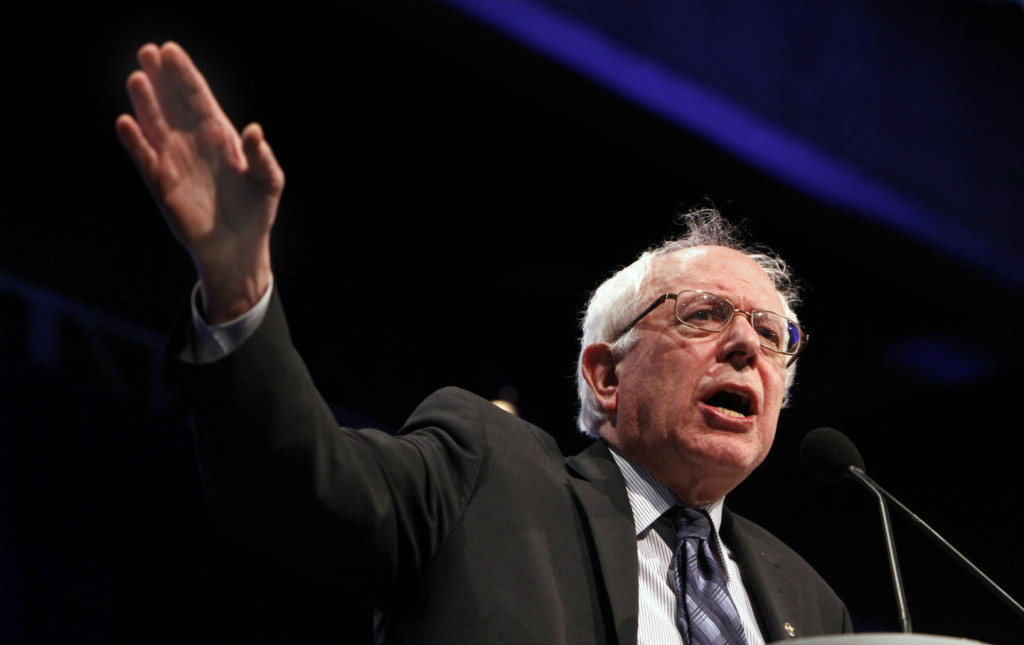
As you might expect of a candidate who labels himself a Democratic socialist, Bernie Sanders is at the low end of earners among candidates for president in 2016. But the Vermont independent, a candidate for the Democratic nomination, earns a $174,000 Senate salary that puts him among the top 5 percent of Americans in income. The Sanders campaign produced a new financial disclosure form Thursday, nearly identical to one it filed with the Federal Elections Commission on May 29. It shows Sanders got less than $2,000 total for three speaking appearances since last fall, including $850 for appearing on the HBO talk show “Real Time With Bill Maher.” Sanders reported donating the speaking fees to Vermont charities. He also got a $5,000-a-year pension from the city of Burlington for his time as mayor. Sanders also listed 28 retirement fund accounts belonging to his wife, Jane O’Meara Sanders, worth between $194,000 and $735,000. The disclosure forms only ask for a range of values, such as between $1,001 and $15,000. Meanwhile, Democratic candidate Martin O’Malley and his wife, Catherine Curran O’Malley, last year earned a solid $270,000 in wages, plus a $61,000 pension from his time as mayor and council member in Baltimore. O’Malley is competing with Sanders to be the liberal alternative to the overwhelming Democratic front-runner Hillary Rodham Clinton. Both men’s earning paled in comparison to Clinton’s. Her May financial disclosure form, showed that she and her husband, former President Bill Clinton, earned more than $25 million in speaking fees since the beginning of 2014. Republished with permission of The Associated Press.


